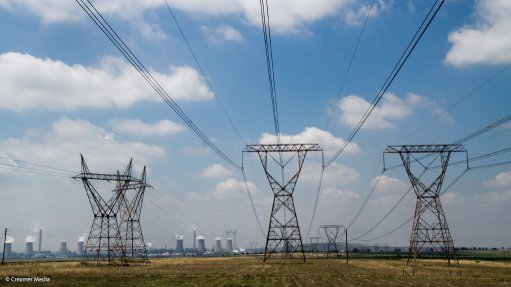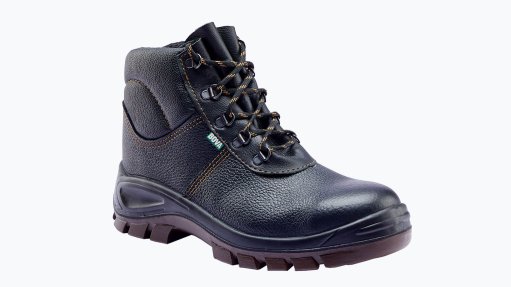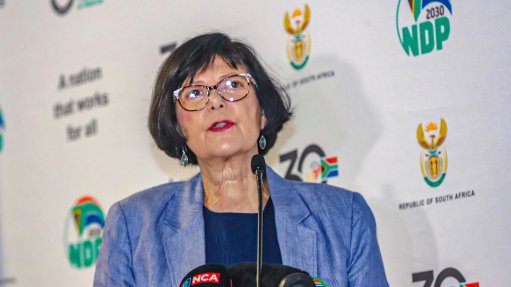Tech sector leaders weigh in on empowering more women in tech
This article has been supplied and will be available for a limited time only on this website.
Africa’s digital economy is growing rapidly, yet women remain woefully underrepresented across the technology sector. This is a barrier to innovation, which thrives on diverse perspectives, and closing the gap requires industry players to help build an ecosystem where women are fully empowered to lead, create and influence the continent’s digital future.
In light of Women’s Month as well as GirlCode’s upcoming #GirlCodeHack Hackathon, representatives from prominent industry brands comment on some of the biggest barriers keeping women from progressing in Africa’s tech sector.
1. Representation must go beyond numbers
Diversity metrics alone don’t create impact. Women need roles that carry influence and decision-making power. Without this, even talented women remain sidelined in shaping products, strategy, and culture.
“To me, real representation means women are trusted, they are heard, and they are empowered to lead. Having women in the room is a start but making sure their ideas help shape the work and the future of tech is even more crucial,” says Chantal Willemburg, Data Technical Business Analyst at NinetyOne Limited.
2. The STEM pipeline is leaking talent
While more girls are embracing STEM subjects at school level, many exit before entering the workforce due to a lack of access to good mentorship, exposure to the industry, and role models.
“South Africa’s future innovators are sitting in our classrooms today, but they need access to the right tools and opportunities to realise their potential,” says Taylor Kwong, CSI Manager at Vumatel. “By connecting schools to reliable, high-speed fibre, we’re not just giving learners internet access; we’re opening the door to STEM education, digital skills and careers they may never have imagined.”
3. Inclusive workplace cultures are still rare
Even when women enter tech roles, workplace culture often remains exclusionary. From subtle bias to inflexible structures, many women leave before reaching leadership levels.
Stephanie Snyman, Chief Talent Officer at iKhokha, adds, “Creating spaces where women feel included, empowered and able to grow their careers should be high on our agendas as the tech sector, and through our investment in GirlCode we are honoured to play a role in improving the representation of women in tech.”
4. Access to networks and opportunity is uneven
Key industry networks, funding and mentorship often remain male-dominated, making it harder for women to accelerate careers and influence decisions.
Absa’s Head of Strategy and Transformation, Tamu Datuma, notes: “To accelerate women’s impact in tech, we must continue to dismantle barriers to access, support inclusive education and mentorship programmes, and champion initiatives that create equal opportunities.”
5. Skills and leadership development must be deliberate
Beyond simply hiring more women as a tick-box exercise, closing the gap involves equipping women with the tools, guidance and strategic exposure to lead at the helm of innovation.
Addressing these challenges requires tangible opportunities and collaboration. Initiatives like the GirlCode Hackathon provide a platform where women can apply skills in fintech, AI, and cybersecurity, gain mentorship, and build solutions with real-world impact.
“Behind every successful GirlCode Hackathon are the partners who believe in the power of women to shape Africa’s future,” says Zandile Mkwanazi, CEO and Founder of GirlCode. “Their investments in our young girls and women are changing career trajectories, creating economic opportunities and accelerating Africa’s digital transformation.
The 2025 GirlCode Hackathon will take place across Johannesburg, Cape Town, and Durban in October, coinciding with the International Day of the Girl Child. Beyond coding competitions and cash prizes, the event fosters mentorship, representation, and tangible career pathways for women entering and growing in tech.
Comments
Announcements
What's On
Subscribe to improve your user experience...
Option 1 (equivalent of R125 a month):
Receive a weekly copy of Creamer Media's Engineering News & Mining Weekly magazine
(print copy for those in South Africa and e-magazine for those outside of South Africa)
Receive daily email newsletters
Access to full search results
Access archive of magazine back copies
Access to Projects in Progress
Access to ONE Research Report of your choice in PDF format
Option 2 (equivalent of R375 a month):
All benefits from Option 1
PLUS
Access to Creamer Media's Research Channel Africa for ALL Research Reports, in PDF format, on various industrial and mining sectors
including Electricity; Water; Energy Transition; Hydrogen; Roads, Rail and Ports; Coal; Gold; Platinum; Battery Metals; etc.
Already a subscriber?
Forgotten your password?
Receive weekly copy of Creamer Media's Engineering News & Mining Weekly magazine (print copy for those in South Africa and e-magazine for those outside of South Africa)
➕
Recieve daily email newsletters
➕
Access to full search results
➕
Access archive of magazine back copies
➕
Access to Projects in Progress
➕
Access to ONE Research Report of your choice in PDF format
RESEARCH CHANNEL AFRICA
R4500 (equivalent of R375 a month)
SUBSCRIBEAll benefits from Option 1
➕
Access to Creamer Media's Research Channel Africa for ALL Research Reports on various industrial and mining sectors, in PDF format, including on:
Electricity
➕
Water
➕
Energy Transition
➕
Hydrogen
➕
Roads, Rail and Ports
➕
Coal
➕
Gold
➕
Platinum
➕
Battery Metals
➕
etc.
Receive all benefits from Option 1 or Option 2 delivered to numerous people at your company
➕
Multiple User names and Passwords for simultaneous log-ins
➕
Intranet integration access to all in your organisation


















